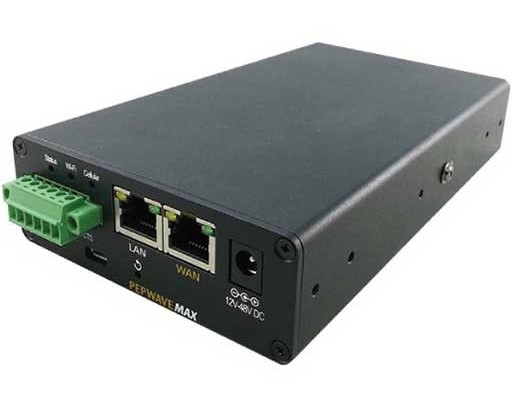
5G promises amazing speeds and lower latency than LTE, which is understandably very attractive to anyone in the market for a cellular-capable router for their home, business, or vehicle – and now that Peplink has launched a few 5G routers (and other manufacturers will be following suit soon), it may seem that considering only 5G routers is an obvious choice. However, the availability of 5G routers does not mean that LTE routers are obsolete! It will be years before LTE is truly “outdated,” and in fact an LTE router remains the best choice for many users. If you own an LTE router, in most cases there’s no need to rush to upgrade. And if you’re researching and shopping for a new router, there are some important factors to take into consideration before investing in a 5G router:
- Carrier support: none of the currently available 5G routers are certified with any US carrier. This means that it’s not possible to activate a 5G router on a new line of service, and even if you have an existing SIM you plan to swap over, there is no guarantee that the carrier will allow the new router to work on your current plan. This is a showstopper for most users.
- Real-world performance: Speedtests done by manufacturers and reviewers showcase extremely impressive peak 5G speeds, but in practice, with lots of user load, the max speeds most 5G users are seeing are not significantly better than an LTE modem. Unless you need to provide service to hundreds of users via your router, LTE is likely sufficient.
- Coverage: The frequencies currently used by the major 5G networks does not penetrate inside buildings well, and there aren’t yet any 5G signal boosters available to buy. This means that a 5G router may not even be able to pick up the 5G signal well enough to allow for optimum performance.
- Stability and reliability: For a majority of users, having a stable connection is key for remote work and schooling or even just general internet access. With the still-in-progress roll out of 5G and its overall newness, there are bound to be unexpected network issues, bugs, or other problems that take time and effort to overcome. For those concerned with stability, LTE is tried and true and should definitely be considered an advantage over 5G. It’s also important to remember that the 5G routers themselves are new, and with any new electronic, it’s sometimes best to hold off on purchasing until they’ve been proven to be reliable and free of major hardware of firmware flaws.

5G is very exciting and will likely be a top choice down the road once the carriers have fully deployed their networks, router manufacturers have gained certification for their devices, and signal boosters are available to help with coverage issues. For some users, such as companies looking to standardize on hardware that will be deployed en masse for years or users whose applications include extremely bandwidth-intensive requirements, it makes sense to consider a 5G-capable model now even despite the concerns described here. But for many, the extra cost and other potential obstacles posed by 5G routers make an LTE router the safer choice.

